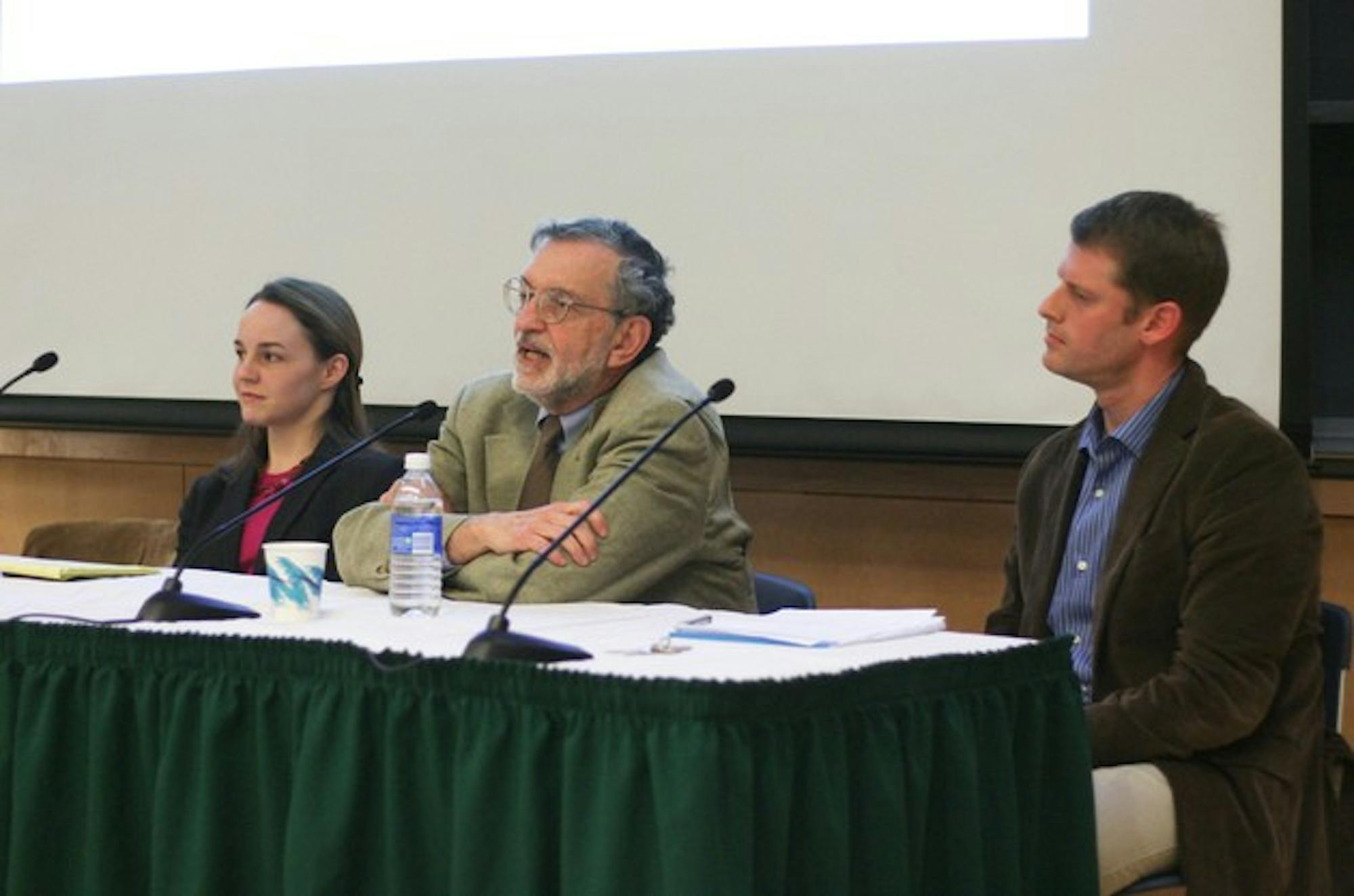The panel consisted of government professors Bridget Coggins, Daryl Press, department chair William Wohlforth and Kenneth Yalowitz, director of the John Sloan Dickey Center for International Understanding and former U.S. ambassador to Belarus and Georgia.
Tensions escalated between Georgia, a U.S. ally, and the break-away regions of South Ossetia and Abkhazia this summer, prompting Russia's invasion of South Ossetia on Aug. 8 and subsequent push into Georgia's interior over the next few days. Russia pulled the bulk of its troops out of Georgia by Aug. 22, according to The New York Times.
All of the panelists stressed that this short conflict did not signal the beginning of a new Cold War between Russia and Western powers.
"The Russians are trying to position themselves as threatening," Yalowitz said. "This has had some effect in Central Asia and the Caucasus, but the Russians are being clobbered in the economy. You have to have an economy to support [a cold war]."
In addition to Russia's failing economy, the country is suffering from major pollution and health concerns, Yalowitz added.
Though the conflict in Georgia did not renew intense hostility between the U.S. and Russia, all of the panelists stressed that talks between the U.S., the European Union and Russia are needed.
"In almost every respect, we have our Russian policy upside down," Press said. "We are missing a great opportunity here and putting ourselves into a weaker position."
The three major international threats to U.S. security are terrorism, nuclear proliferation and possibly China, according to Press, an expert on U.S. security. The Russian government could be "a great ally on all three fronts" because of Russia's extended conflict with Islamic terrorists in Afghanistan and Chechnya, its working relationship with Iran and its proximity to China, Press said.
Two of the greatest obstacles to developing good relations with Russia are U.S. plans to develop missile defense systems in Eastern Europe and the proposed extension of NATO membership to former Soviet Bloc nations, such as Georgia and Ukraine, according to Press. NATO expansion is a "terrible mistake" because it could force the U.S. to become militarily involved in the volatile region, he added.
"While [NATO] might be a club of democracy, it is a club that carries with it a binding military contract," he said. "Given that this is a region where conflicts are many and legitimacy is overlapping ... do we want to commit [young people] to fight and die over [these conflicts]?"
Wohlforth added that NATO expansion now is very different from what it was a decade ago.
"It used to be relatively inexpensive to welcome people into NATO," he said. "If you are extending that guarantee now, you better be ready to fight and die for that guarantee."
The disputed independence of South Ossetia and Abkhazia could make U.S. commitment to the region potentially dangerous, according to Coggins, an expert on the politics of secession. While Russia and several Central and South American countries recognize the break-away regions as independent, the U.S. 'steadfastly opposes independence,'" she said.
"This is not a new Cold War, but the great powers do not differ often on who is a nation and who isn't," Coggins said. "It isn't dangerous now, but if there is a conflict, it will be because both sides have committed their support."
Coggins said she believes that Russia recognized the nation status of these small regions largely in response to U.S. recognition of Kosovo's independence from Serbia, which Russia strongly opposed. The U.S. supported Kosovar independence in light of the genocide of ethnic Albanians by Serbia, but does not see South Ossetia and Abkhazia's desires to return to the autonomy they enjoyed under the Soviet Union as legitimate bases for secession, she said.
The U.S. may ruin a great opportunity to obtain a powerful ally by unnecessarily "aggravating" Russia, Press said. He drew a connection between former President Richard Nixon's establishment of diplomatic relations with China under Mao Zedong in 1972 and the current need to better U.S. relations with Russia despite fundamentally "different sets of interests."
"There was a period during the Cold War when the U.S. reached out to a communist country, China, to deal with shared problems," Press said. "We need to form a normal, cooperative relationship with Russia."




